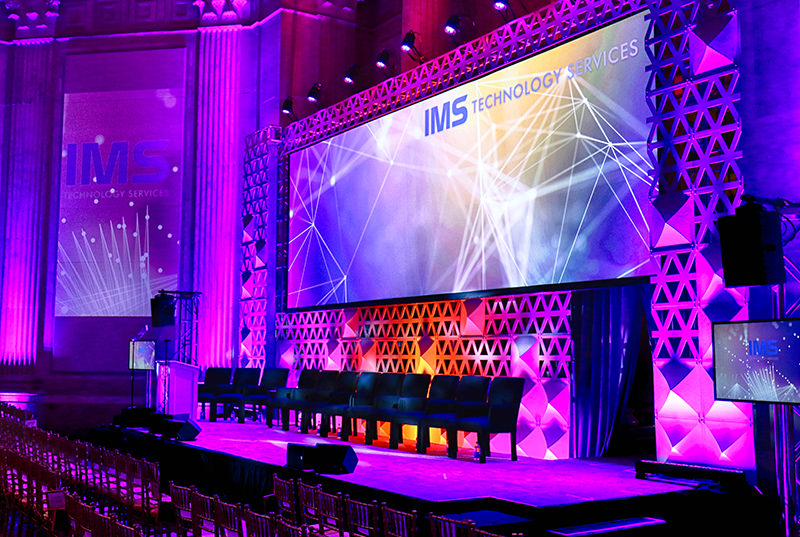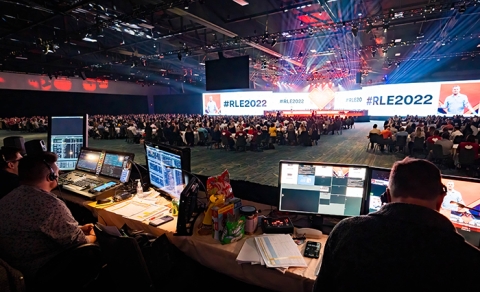Budget-Friendly Ideas to Enhance Your Event Productions
Budget-Friendly Ideas to Enhance Your Event Productions
Blog Article
Comprehending Just How Events Production Works: A Comprehensive Summary of the Refine
The intricacies of event production need a methodical technique that incorporates several phases, each playing a crucial duty in the total success of an occasion. From the preliminary preparation and principle growth to the careful control of logistics, every element needs to straighten perfectly to accomplish the wanted outcome. Comprehending the subtleties of budgeting, source allocation, and on-site administration is necessary for any professional in this field. As we discover these parts even more, it ends up being noticeable that the procedure is not merely regarding execution yet additionally concerning continuous enhancement and critical evaluation. What insights can we obtain from each phase?
Initial Planning and Idea Growth
Reliable first preparation and principle development work as the foundation for successful events production. This stage entails specifying the occasion's objective, target market, and desired end results. A clear vision is crucial; it guides all succeeding choices and aids line up the group's efforts toward an usual objective.
During this stage, brainstorming sessions can be very useful. Involving stakeholders, consisting of clients, sponsors, and potential attendees, cultivates a joint environment that produces ingenious ideas. Additionally, complete market research should be performed to recognize patterns, preferences, and possible difficulties.
As soon as the idea is established, it is crucial to create a thorough occasion overview. This summary must include the event's motif, format, and key tasks. Developing a timeline is just as essential, as it assists to take care of deadlines and jobs effectively.
Budgeting and Source Allowance
With a strong concept in place, attention should turn to budgeting and resource allowance, which are crucial parts in executing the occasion successfully. A distinct spending plan offers as a roadmap, describing all anticipated prices and readily available sources - Event Productions.
Source appropriation entails appointing both economic and human sources to different jobs and elements of the event. Prioritization is essential; necessary components must receive adequate funding while less critical aspects might require a more conservative approach. Backup preparation is critical-- allocating a section of the spending plan for unanticipated costs can reduce financial risks.
Additionally, effective interaction amongst staff member concerning budget restrictions fosters collaboration and technology. This advertises the accountable use sources and motivates creative remedies to stay within budget. Inevitably, a calculated method to budgeting and resource appropriation lays the groundwork for an effective event, enabling organizers to focus on delivering a remarkable experience for guests while keeping monetary integrity.
Logistics and Control
Navigating the intricacies of logistics and sychronisation is important for the smooth execution of any kind of event. This stage involves thorough planning and company to guarantee that all parts work in consistency. Crucial element include place selection, transport arrangements, and the organizing of various tasks.
Effective logistics starts with a thorough assessment of the venue's capacities and restrictions. This includes comprehending the design, gain access to factors, and readily available resources. When the location is validated, transport logistics must be established, including the motion of guests, tools, and products. Working with these components calls for collaboration with vendors, suppliers, and transportation services to guarantee timely shipments and pick-ups.
One more critical facet is the development of a comprehensive timeline that describes all logistical aspects leading up to the event. This timeline works as a roadmap, detailing key milestones and due dates for jobs such as equipment configuration, providing services, and audiovisual setups. more Routine communication with all stakeholders is important to deal with any possible problems proactively.
Implementation and On-Site Monitoring
Effective implementation and on-site administration are vital for transforming precise plans into truth throughout an event. Their ability to make real-time decisions can significantly impact the occasion's success.
A well-defined routine is vital, working as a roadmap for all tasks. Event managers must guarantee that configuration happens in a timely manner, sticking to timelines for audio checks, providing deliveries, and visitor arrivals. Effective problem-solving skills are also vital; unanticipated challenges can arise, requiring quick thinking and flexibility to preserve the event's flow.
Additionally, interest to guest experience is paramount. Keeping track of guest communications, making sure security procedures are followed, and providing support personnel to attend to problems cultivates a positive atmosphere. page This level of engagement not only improves the general experience however likewise shows the professionalism of the event team. Event Productions. Ultimately, successful execution and on-site management rest on detailed preparation, effective interaction, and a commitment to delivering an outstanding occasion for all entailed.

Post-Event Analysis and Feedback
The culmination of any type of event exists not only in its implementation however also in the extensive analysis that adheres to. Post-event analysis is necessary for identifying the total success of the event and recognizing areas for renovation. This procedure usually involves event responses from numerous stakeholders, including participants, vendors, and employee, to obtain an extensive viewpoint on their experiences.
To structure the assessment, event coordinators usually use interviews and surveys, concentrating on vital performance signs such as guest satisfaction, logistical efficiency, and budget adherence. Evaluating this information allows planners to evaluate whether the event met its goals and to recognize the staminas and weak points of the implementation.
Additionally, compiling a comprehensive record summing up the findings is critical for future recommendation. This documentation not only works as a useful source for planning succeeding occasions however additionally cultivates a society of continual improvement within the organization. By systematically dealing with comments click for source and implementing changes, occasion specialists can enhance their approaches, eventually leading to more impactful and effective occasions. In conclusion, post-event examination is an important action in the occasion manufacturing procedure that guarantees recurring growth and excellence in future endeavors.
Verdict

The complexities of occasion production need a systematic method that incorporates several stages, each playing a crucial duty in the general success of an event.With a strong principle in location, focus must turn to budgeting and resource appropriation, which are important parts in performing the occasion efficiently.Resource appropriation includes assigning both human and financial resources to different jobs and parts of the event. Ultimately, a calculated strategy to budgeting and resource allowance lays the foundation for an effective event, allowing organizers to concentrate on delivering an unforgettable experience for participants while maintaining financial stability.

Report this page